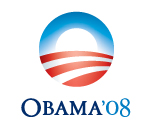The future for the Premier League
A pal sent me this article, don't know where it's from, but it makes for worrying reading for those who love football.
There are worries of the financing of TV for premier League Football. The seventeen years of the expansion of the Premier League has been built largely on television money, but possible upcoming changes to the regulations regarding digital television in England could see the once seemingly endless increase of money being paid to the clubs by Sky Sports start to dry up somewhat. At a Premier League meeting three weeks ago, Richard Scudamore admitted as much to the chairmen of the twenty members of the league. The response, according to one source at the meeting, was “stunned silence”.
The Premier League’s business plan is utterly, hopelessly dependent upon a constant stream of money. More than prize money or gate receipts, it is the bed rock upon which the illusion of the league’s wealth is built. The concerns of the Premier League are very real, though. Prompted by complaints that Sky are too dominant in the pay TV market from rivals BT Vision, Virgin and Top-Up TV, the industry regulator Ofcom launched an investigation into the market, in particular focussing on the high cost to these rivals of carrying Sky’s premium sports and movie channels. The results didn’t make for very encouraging reading for Sky.
Ofcom’s intention is to force Sky to cut the cost of the sale of their services to their rivals by something up to one third. Such reductions would be likely to introduce something of a price war, with significant reductions being passed on to consumers. It would also have knock-on effects that would go on to affect Premier League football clubs. On the one hand, if revenues are due to drop, Sky may decide to bid less for sports rights next time around.
Just over a third of Manchester United’s income comes from the domestic television money that they receive, but down at the foot of the table Sky’s pot of gold accounts for considerably more. According to The Times, “the latest accounts for Hull City showed that 84% of the almost £40m increase in turnover it has enjoyed since promotion was from broadcast money”.
The Premier League is sitting on a time bomb and it has three options to deal with it. The current contract isn’t up until 2013, which gives clubs three years to cut their cloth accordingly. Considering the way in which most Premier League football clubs deal with their finances, this seems unlikely. They could pass these costs on to supporters through increasing season ticket sales again, but the pattern of season ticket sales over the last couple of seasons would seem to indicate that the glass ceiling of what supporters – even the most loyal – are prepared to pay for their seats would appear to be close, if not already actually reached. This would be a high risk gamble. The third option would be for the twenty Premier League football clubs to put their fingers in their ears and sing very loudly. It says something about the level of confidence that most people have in those running Premier League clubs that many supporters would pick the latter of the most likely of those three scenarios.
nick











0 Comments:
Post a Comment
<< Home